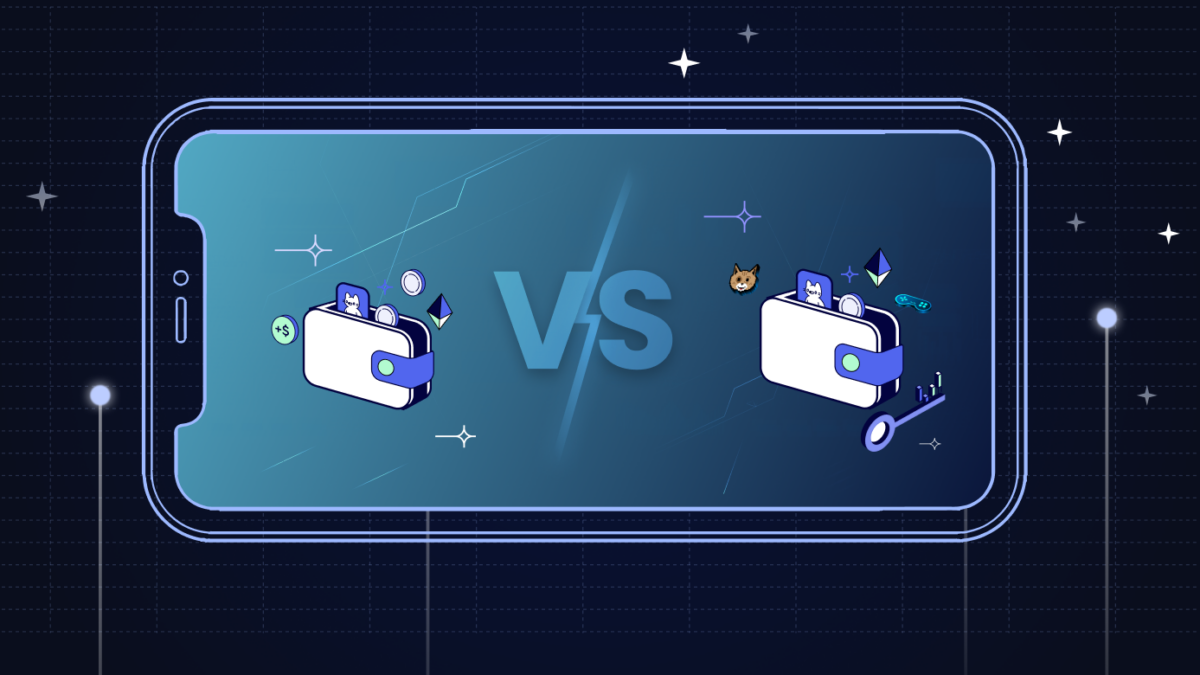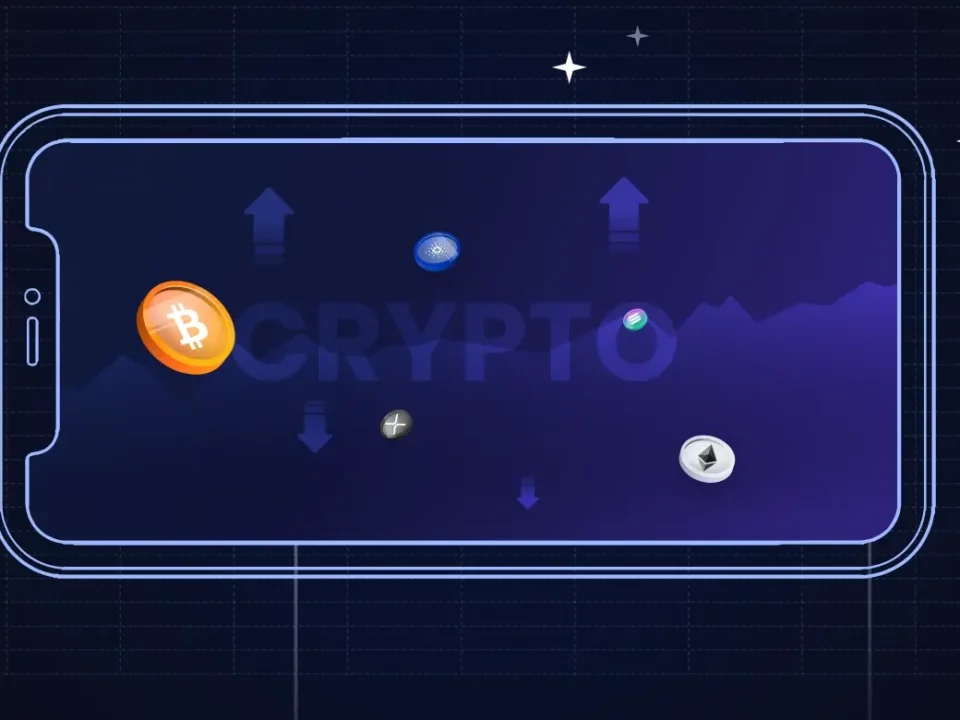Table of Contents
ToggleIntroduction
NFTs, short for non-fungible tokens, are a major tech trend gaining immense popularity, especially in art and celebrity involvement. The custodial vs. non-custodial NFT debate is crucial in today’s landscape, as NFTs play a central role in DeFi and the metaverse.
Given the growing interest in NFTs, understanding custodial and non-custodial options is essential for NFT ownership. The article is aimed to clarify the differences between these types of NFT wallets.
What are Crypto Wallets?
In the realm of blockchain systems, a crypto wallet plays a vital role, enabling users to authorize transactions, manage balances, utilize blockchain services, and access NFT marketplaces. These wallets also enhance security and accuracy by reducing the need to store user account information.
A crypto wallet consists of two essential components:
- a public key, similar to a shareable wallet address
- a private key, which acts as a confidential PIN for securing the wallet.
The level of access to the private key significantly impacts security, as losing it can potentially lead to the theft of all crypto assets and NFTs within the wallet.
While there’s ample information on NFTs, custodianship is a less-explored concept. It prompts questions about who has ultimate control over newly created or acquired NFTs. The choice between custodial and non-custodial NFTs gains significance when selecting a wallet and participating in NFT activities on various platforms.
Additional Read: Crypto Hot Wallet vs Cold Wallets
Importance of Crypto Wallets
Similar to physical wallets, crypto wallets also play an important role in storing digital currencies and facilitating transactions on specific blockchain networks. To engage with decentralized applications or carry out transactions within a blockchain network, you require a crypto wallet. Within any wallet, two key elements stand out: the public key and the private key. Interestingly, depending on the type of crypto wallet, you can also utilize them for storing NFTs.
Given that NFTs essentially function as tokens on a blockchain network, storing them in crypto wallets is a straightforward process. If crypto wallets are capable of storing NFTs, you might wonder why it’s important to distinguish between custodial and non-custodial NFTs. The answer to this question becomes evident when you delve into the distinct definitions of custodial and non-custodial variations of NFTs.
What are Custodial NFTs?
To grasp custodial NFTs, we need to look at the custodial crypto wallets. These wallets don’t give full private key control to users; instead, a third party like a wallet provider or exchange manages them. Storing an NFT in such a wallet means entrusting access to another platform. Whether it’s prudent to cede control of valuable NFTs to a third-party custodian is a key consideration.
Custodial NFTs are Non-Fungible Tokens (NFTs) that are stored, managed, and controlled by a third-party custodian, typically a centralized platform or service. In a custodial NFT system:
- Ownership: Users own these NFTs, which means they have the rights to buy, sell, and trade them. However, the actual control over these NFTs is delegated to the custodial platform or service.
- Storage: Custodial NFTs are stored within the infrastructure of the custodial platform. The platform manages the storage and security of the NFTs on behalf of the users.
- Private Keys: Users do not have direct access to the private keys associated with their NFTs. Instead, the platform controls the private keys, and users have accounts on the platform that reflect their ownership.
- User-Friendliness: Custodial NFT platforms are often designed to be user-friendly, making them accessible to individuals who may not have extensive experience with blockchain technology. This user-friendliness extends to activities like buying, selling, and trading NFTs.
- Support: Custodial platforms typically offer customer support to assist users with their accounts and transactions.
Custodial NFTs are convenient for individuals who are new to the world of blockchain and NFTs, as they provide a simplified and user-friendly experience. However, this convenience comes at the cost of reduced control and reliance on the custodial platform for the security and management of NFTs. Users need to trust the custodian to safeguard their assets and adhere to the platform’s policies and security measures.
Learn More: Fungible vs Non-Fungible Tokens
What are Non-Custodial NFTs?
Non-custodial NFTs are Non-Fungible Tokens (NFTs) that are characterized by the absence of third-party custody or control. In the context of non-custodial NFTs:
- Ownership and Control: Users have complete ownership and control over their NFTs. This means they have direct access to the private keys associated with their NFTs.
- Storage: Non-custodial NFTs are stored in the user’s personal blockchain wallet, and users are responsible for managing the storage and security of their NFTs themselves.
- Private Keys: Users have full access to and control over their private keys, which are necessary for transactions and managing NFTs.
- Privacy and Autonomy: Non-custodial NFTs enable users to interact directly with the blockchain and make decisions about how they want to store, trade, or utilize their NFTs. There is no reliance on a third party.
- Security and Responsibility: Users are solely responsible for safeguarding their private keys. Losing these keys can result in the loss of access to their NFTs, making security practices vital.
Non-custodial NFTs prioritize user control, security, and privacy. While they offer increased autonomy, they may also be more complex to use, especially for individuals new to blockchain technology. Users need to take responsibility for the safety and security of their NFTs and adhere to best practices for private key management.
Custodial NFT Wallet vs Non-Custodial NFT Wallets
| Aspect | Custodial NFTs | Non-Custodial NFTs |
|---|---|---|
| Ownership and Control | – Owned by users | – Fully owned and controlled by users |
| – Control delegated to a third-party custodian | – Stored in the user’s blockchain wallet | |
| Security and Responsibility | – Rely on platform security measures | – Users are responsible for security |
| – Limited control over assets | – Reduced platform-based security risk | |
| User-Friendliness | – More user-friendly for beginners | – May be more complex for beginners |
| – Convenient for transactions within the platform | – Direct interaction with blockchain | |
| Support and Account Recovery | – Typically offer customer support | – Limited customer support options |
| – Account recovery options available | – No account recovery mechanism | |
| – If credentials forgotten |
However, the choice between custodial and non-custodial NFTs depends on individual preferences and priorities, considering the trade-offs in control, security, user-friendliness, and support.
Pros and cons of Custodial & Non-Custodial NFT Services
Custodial NFT Services:
Pros:
- User-Friendly: Easy for beginners, as the platform manages keys and transactions.
- Convenient: Provides a seamless user experience for buying, selling, and trading NFTs.
- Support: May offer customer support and account recovery options.
Cons:
- Lack of Control: Users have limited control and ownership over their NFTs.
- Centralized Risk: Vulnerable to platform outages, hacking, or decisions made by the platform.
- Trust Required: Users must trust the custodian to secure their assets.
Non-Custodial NFT Services:
Pros:
- Full Control: Users have complete ownership and control over their NFTs and private keys.
- Security: Reduced risk of platform-based security issues since assets are in the user’s wallet.
- Privacy: Transactions and asset ownership are private and not reliant on a third party.
Cons:
- Complexity: Non-custodial wallets require users to manage their private keys and understand security practices.
- Responsibility: Users are solely responsible for their private keys, and losing them can result in the loss of assets.
- Limited User Support: May have limited customer support options in case of issues.
It is essential to weigh the trade-offs between custodial and non-custodial NFT services and then select the approach that aligns with your values and preferences in the NFT space.
Read More: NFTs vs Crypto
Conclusion
In conclusion, it’s evident that custodial and non-custodial NFTs serve distinct purposes. However, the choice between the two depends on the level of custody you desire for your created or acquired NFT. Each type offers unique advantages:
- Opting for a custodial NFT relieves you from the responsibilities of managing private keys. You can enjoy a more straightforward user experience.
- Conversely, with non-custodial NFTs, you gain enhanced security prospects. However, this increased control comes with the trade-off of limited support. Losing the private keys for a non-custodial NFT could mean irreversible loss.
Explore NFTs further to determine which variant aligns best with your preferences and requirements. Make an informed choice that suits your needs.
Related posts
Understanding the Different Types of Cryptos: Coins, Tokens, Altcoins & More Explained
Explore the major types of crypto assets and their unique roles.
Read more
PAWS Telegram Game: The New Tap to Earn Game That Is Beating Hamster Kombat
Discover how to play and earn with PAWS Telegram game.
Read more


